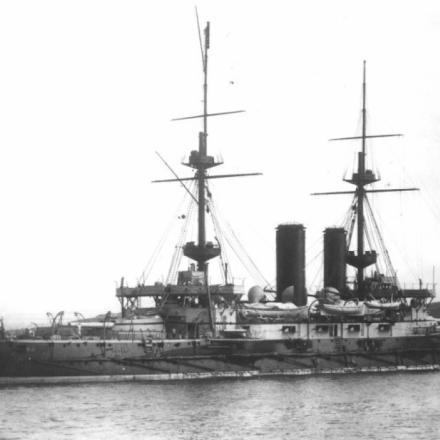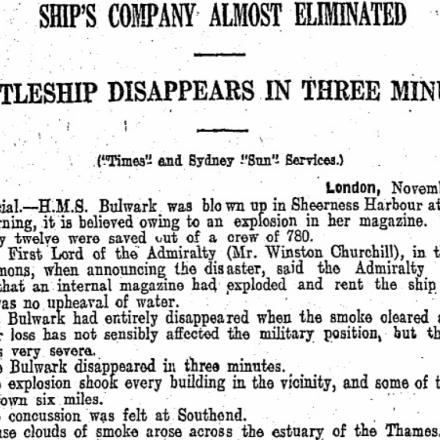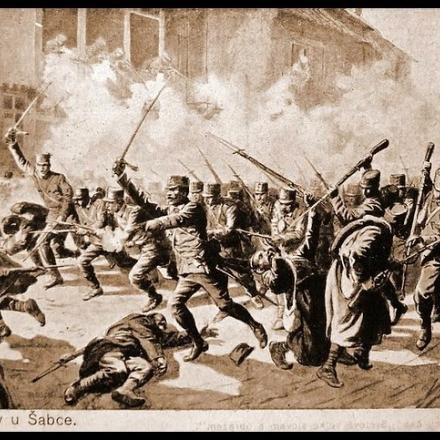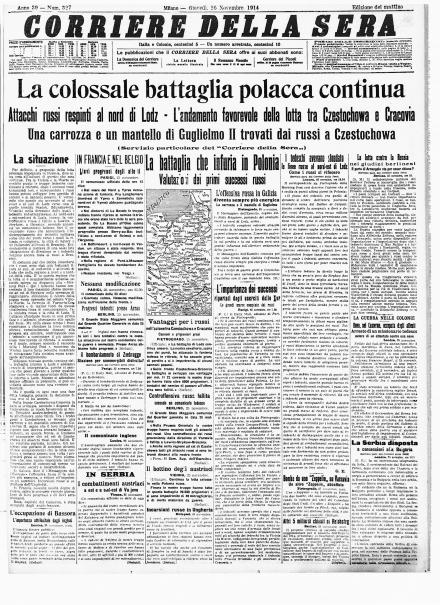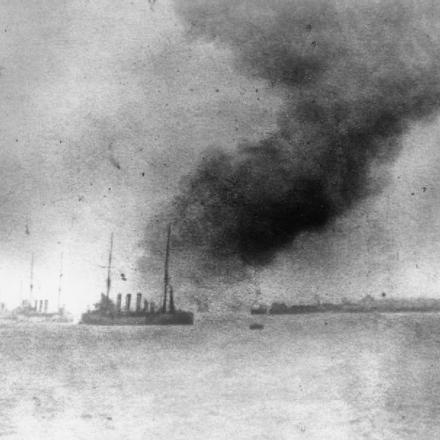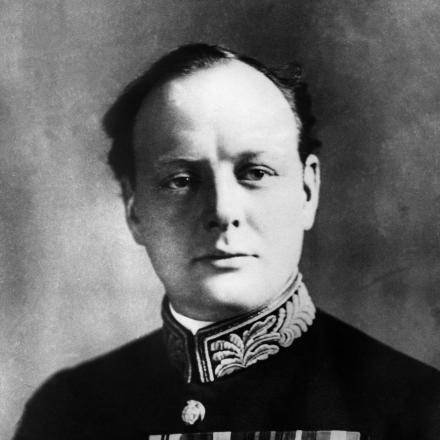Lo spettro del sabotaggio
Su La Stampa Paolo Scarfoglio ci guida al fronte: «La campagna è silente, morta, deserta. Chi vuol vedere gli effetti della guerra non si contenti di visitare gli ospedali, di enumerare e studiare gli effetti degli obici sugli alberi e sulle case, ma attraversi a piedi una provincia contigua al teatro della battaglia. […] La campagna è divenuta ancor più triste e deserta col cadere della sera. Lo stridere continuo dei nuvoli di corvi affamati, che riempiono l’aria di un aleggiare di stracci neri, ricorda le visioni classiche dei campi di battaglia».
Il 26 novembre i tedeschi provano a sfondare le linee Alleate a Missy-sur-Aisne e lungo il canale dell'Yser: vengono respinti in entrambi i casi. Si può solo continuare il duello d’artiglieria.
Tralasciando gli eccessi della “spionite”, qualche agente tedesco sul suolo britannico dev’esserci: la nave inglese Bulwark è affondata nel porto di Sheerness, alla foce del fiume Medway; quasi 800 i morti.
La causa del disastro è un’improvvisa e terrificante esplosione interna; il sabotaggio è di gran lunga l’ipotesi più concreta.
A 1.800 chilometri di distanza gli austro-ungarici sono costretti a evacuare Chernivtsi, in Bucovina. Ancora una volta i russi incalzano le truppe asburgiche da vicino.
Davide Sartori
GLI AVVENIMENTI
Fronte occidentale
- I tedeschi attaccano Missy-sur-Aisne e lungo il canale dell'Yser, ma sono respinti.
Fronte orientale
- I russi varcano i Carpazi accerchiando le forze asburgiche.
- Bucovina: gli austro-ungarici evacuano nuovamente Czernowitz (Chernivtsi).
Fronte meridionale
- Gli austro-ungarici riportano un insuccesso in Serbia tentando di varcare il Kolubara.
Operazioni navali
- L’inglese H.M.S. “Bulwark” affonda nel porto di Sheerness, sul fiume Medway (sud-est inglese) per un’esplosione interna. Ci sono 800 vittime, si sospetta il sabotaggio.
Parole d'epoca
Testimone oculare dell'esplosione del Bulwark
Nottingham Evening News
"I was at breakfast at about ten minutes to eight o'clock when I heard an explosion and I went on deck. My first impression that the report was produced by the firing of a salute by one of the ships but the noise was quite exceptional. When I got on deck I soon saw that something awful had happened.
The water and the sky were obscured by dense volumes of smoke. We were at once ordered to the scene of the disaster, to render what assistance we could.
At first we could see nothing, but when the smoke had cleared a bit, we were horrified to find that the battleship had gone. It seemed to have entirely vanished from sight, but a little later we detected a portion of the huge battleship showing about four feet above the water.
We kept a vigilant look out for any of the unfortunate crew but only saw two men. I don't know whether other boats rescued any. One of the men we saw was dead. The poor fellow was terribly mutilated: one arm was torn off and hanging as if by a thread, while the body was terribly cut about. His clothing was in shreds. The other man was alive but unconscious. He had terrible wound in his forehead.
The Bulwark was lying near Sheerness, and was taking in ammunition from some barges at the time. Some say there were three powder barges there, if so, all have gone with the Bulwark. They would have had only two or three hands on each.
Immediately after the explosion the other warships put out their torpedo nets, but, in my own mind, I feel sure there was no enemy submarine about and that the disaster was the result of an accident"
Parole d'epoca
Winston Churchill
Dichiarazione alla Camera dei Comuni
"I regret to say I have some bad news for the house. The Bulwark battleship, which was lying in Sheerness this morning, blew up at 7.35 o'clock.
The Vice and Rear Admiral, who were present, have reported their conviction that it was an internal magazine explosion which rent the ship asunder.
There was apparently no upheaval in the water, and the ship had entirely disappeared when the smoke had cleared away.
An inquiry will be held tomorrow which may possibly throw more light on the occurrence.
The loss of the ship does not sensibly affect the military position, but I regret to say the loss of life is very severe. Only 12 men are saved.
All the officers and the rest of the crew, who, I suppose, amounted to between 700 and 800, have perished.
I think the House would wish me to express on their behalf the deep sorrow with which the House heard the news, and their sympathy with those who have lost their relatives and friends."
